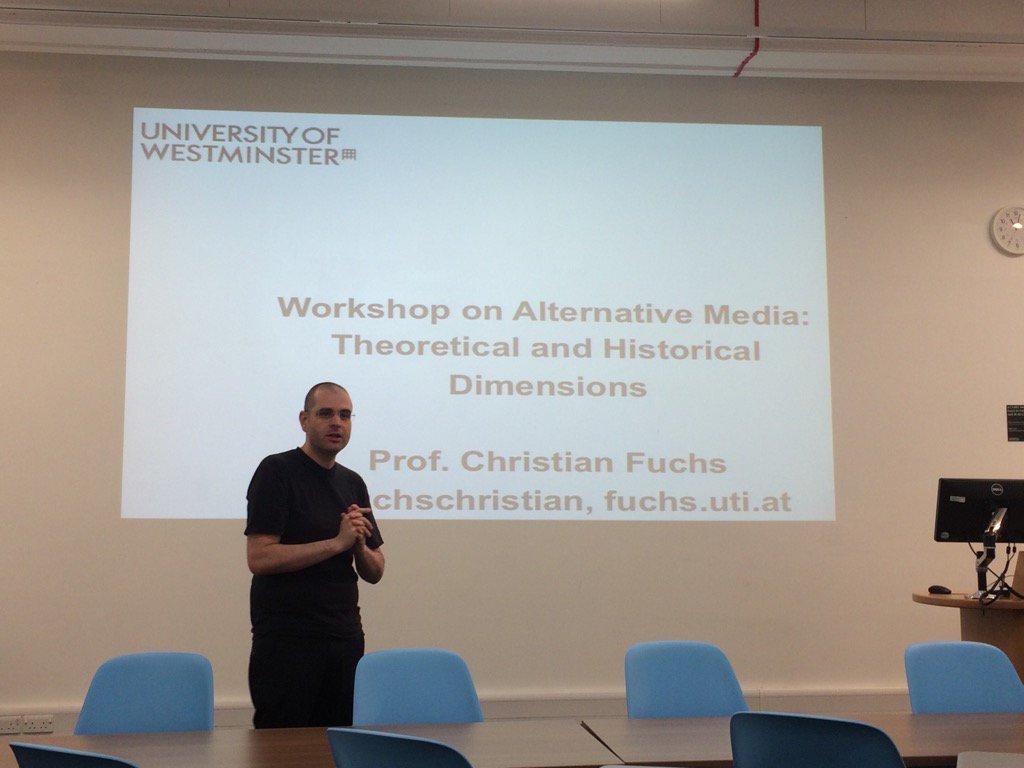Workshop on the History and Theory of Alternative Media

On July 8, 2016, netCommons project partners from CNRS and Westminster University gathered in London with their guests for a workshop on the history and theory of alternative media networks. The day-long event aimed to link theoretical perspectives on alternative communication networks and media technologies with practical cases by drawing on the participants’ experiences and historical knowledge.
Mélanie Dulong de Rosnay opened the workshop with a presentation focusing on the relevance of historical inquiries into alternative media networks for our understanding of contemporary issues that are central to the netCommons project. A report exploring the history of alternative media and drawing lessons from history will be presented to the European Commission by the end of 2016.
Chaired by Christian Fuchs, the second session of the workshop proposed a theoretical exploration of the concept of alternative media. The workshop participants emphasized the problems and blind spots of an all-encompassing theory of alternative media throughout the exploration of various cases studies, including Wikipedia, Linux, and campus radio stations. Pointing to the various meanings suggested by the notion of “alternative media”, Fuchs proposed a conceptual framework informed by political economy which aimed at breaking out different constitutive aspects of alternative media. Fuchs argued that media critical of capitalist economy and media that promote forms of emancipatory politics can be considered alternative, and that such characteristics constitute the most defining features of alternative media.
During the afternoon, Félix Tréguer and Dominique Trudel provided a first overview of the historical case studies that will be explored in the forthcoming report to the European Commission. The report will focus on the history of independent telephone networks in the late 19th and early 20th century, the free radio movement of the 1960s and 1970s, and the first generation of community networks providing Internet access in the early 1990s. On the one hand, the case studies will focus on the successes and failures of these alternative media networks in order to better inform the development of today’s community networks. On the other hand, the report will constitute a genuine contribution to media history by focusing on less-known actors and on struggles that are often overlooked.
The closing session of the workshop took the form of a conversation with James Stevens, a pioneer of the community network movement. James generously shared his memories and impressions concerning several of his past and current projects, including Consume, a free wireless network community started in London in 2000. The long-time involvement of James in the community network movement greatly contributed to the workshop in that it permitted to draw first-hand lessons from the history of community networks.


